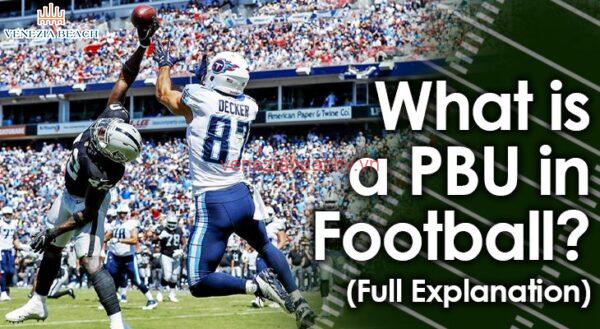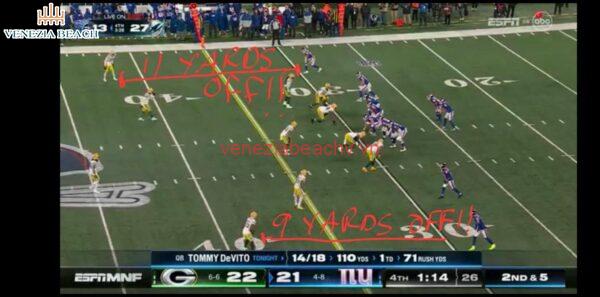What Does PBU Mean in Football: Understanding the Significance and Techniques
In the world of football, understanding the terminology is essential for true aficionados. If you’ve ever wondered, “what does pbu mean in football?” you’re in the right place. At Veneziabeachv.vn, we aim to shed light on this widely used acronym and its significance within the sport. In this article, we’ll explore the meaning of PBU, its importance on the field, techniques for successfully executing a PBU play, common misconceptions associated with it, and how PBU statistics and analysis contribute to strategic gameplay.

I. Key Takeaways
| 1. Definition of PBU | The meaning of PBU in football. |
| 2. Importance of PBUs | The role and significance of PBUs in defense. |
| 3. Techniques for Executing PBUs | Tips and strategies for successfully performing a PBU. |
| 4. Common Misconceptions | Dispelling myths and clarifying misconceptions about PBUs. |
| 5. PBU Statistics and Analysis | Understanding the use of PBU statistics and analysis in football. |
II. What is PBU in Football
It’s time to uncover the mystery behind the acronym PBU and its significance within the football world.
1. Understanding the Definition of PBU
When you hear the term PBU in a football context, it refers to “Pass Breakup.” A PBU occurs when a defensive player effectively prevents an opponent from completing a pass. This could be by deflecting the ball, intercepting it, or simply disrupting the play to prevent a successful reception.
PBUs are often seen as a display of great defensive instinct, technique, and timing. They showcase the ability of players to read the play, react swiftly, and use their skills to halt the progress of the offense.
Related Post: What Does It Mean When a Deer Crosses Your Path?
2. The Role and Importance of PBUs in Defense
PBUs play a crucial role in the success of a football defense. They can help prevent the opposing team from gaining significant yardage or scoring points through completed passes. By breaking up or intercepting passes, defensive players disrupt the flow of the game, forcing the offense into more challenging situations.
The effectiveness of a defense in executing PBUs can greatly impact the outcome of a game. In critical moments, such as on third down or during goal-line stands, a successful PBU can end the offensive drive and give the defensive team an opportunity to regain possession.
Related Post: What Do Cracking 4s Mean?
3. Techniques for Successfully Executing a PBU
Executing a successful PBU requires a combination of skills, athleticism, and situational awareness. Here are some techniques that defensive players employ to increase their chances of disrupting passes:
- 1. Positioning: Maintaining proper positioning relative to the receiver allows defenders to anticipate the route and make a play on the ball.
- 2. Timing: Timing is crucial when attempting to bat down or intercept a pass. It involves reading the quarterback’s intentions, reacting quickly, and making a well-timed jump or dive.
- 3. Hand-Eye Coordination: To break up a pass, defensive players must coordinate their hand movements with their visual focus on the incoming ball.
By mastering these techniques, defensive players can become proficient in executing PBUs and significantly impact the outcome of games.
Related Post: What Does Service Driver Assist System Mean?
4. Common Misconceptions about PBUs
Like any aspect of football, there are often misconceptions surrounding the concept of PBUs. Let’s debunk some common myths:
- Myth 1: PBUs Are Only Made by Defensive Backs: While defensive backs are known for their ability to break up passes, linebackers and even defensive linemen can also contribute to PBUs through well-timed blitzes or swatting down passes at the line of scrimmage.
- Myth 2: PBUs Are Purely Defensive Actions: Offensive players can also have a hand in breaking up a pass, especially in situations where they are playing defense after a turnover or during trick plays.
Related Post: What Does “Get Your House in Order” Biblically Mean?
5. PBU Statistics and Analysis in Football
PBU statistics provide insights into the effectiveness of a team’s defense and individual players. Coaches analyze these numbers to assess performance and make strategic decisions.
Metrics related to PBUs include total PBUs, which show a player’s overall impact on defense, and pass deflection percentage, which indicates how often a player successfully disrupts passes compared to opportunities.
Related Post: What Does It Mean When a Duck Vibrates Its Head?

III. Importance of PBU in Football
The primary objective of a football defense is to prevent the opposing team from advancing the ball and scoring. In this context, Pass Break-Ups (PBUs) play a crucial role in disrupting the passing game of the offense and minimizing their success. PBUs are instrumental in defending against the aerial attack and can have a significant impact on the outcome of a football game.
PBU as a Defensive Strategy
When executed effectively, PBUs have the potential to halt a potential completion, force an incompletion, or even lead to a turnover. By intercepting or deflecting the ball, the defending team can quickly shift the momentum in their favor and regain possession. PBUs disrupt the timing and rhythm of the opposing offense, putting pressure on the quarterback and receivers, and preventing them from establishing a successful passing game.
Minimizing Yardage and Scoring Opportunities
One of the vital aspects of a strong defense is the ability to limit the yardage gained by the opposing team. PBUs contribute to this objective by preventing or reducing the number of completed passes downfield. By denying the offense successful completions, PBUs translate into fewer first downs and ultimately fewer scoring opportunities for the opposing team. The defensive unit can effectively neutralize potent passing attacks and keep the scoreline in their favor through consistent execution of PBUs.

IV. How is PBU calculated in football
Calculating PBU (Pass Break-Up) in football involves determining the number of defensive plays where a defender successfully prevents the receiver from catching a pass. This statistic illustrates a defender’s ability to disrupt the passing game, creating incompletions and potential turnovers. PBU is an essential metric for evaluating a player’s performance in defending against the pass.
| 1. Number of Passes Defended | The total number of times a defender disrupts a pass play by either deflecting the ball, swatting it away, or making a play on the receiver to prevent a catch. |
| 2. Incomplete Passes Caused | The number of passes that become incomplete due to the defender’s actions, whether it’s through tight coverage, physical contact, or well-timed plays on the ball. |
| 3. Interceptions | Interceptions are usually included in the PBU calculation, as they signify successful pass break-ups resulting in turnovers. |
By considering the combination of passes defended, incomplete passes caused, and interceptions, we can accurately assess a player’s effectiveness in breaking up passes and disrupting the opponent’s passing game.

V. Strategies to Improve PBU in Football
When it comes to defending against the passing game, a key aspect for any football player is the ability to perform a Pass Break Up (PBU). By disrupting an opponent’s pass attempt, PBUs can thwart potential completions and provide a significant advantage to the defense. Here are some effective strategies to improve PBU skills:
1. Proper Technique and Positioning
Executing a successful PBU starts with the right technique and positioning. Cornerbacks and safeties should focus on:
- Reading the Receiver: Anticipate the receiver’s route and keep your eyes on their movements. This allows you to react quickly and get into position to break up the pass.
- Maintaining a Proper Stance: Ensure a balanced stance with knees bent and weight evenly distributed. This enables you to move laterally and vertically with agility and speed.
- Timing the Jump: Anticipate the ball’s arrival and time your jump correctly to swat it away or intercept it.
2. Study Opponents and Offensive Schemes
Knowledge is power, and understanding your opponents and their offensive schemes can greatly improve your chances of making PBUs. Some key factors to consider:
- Scouting the Opponent: Watch game tapes and identify tendencies in the opposing team’s passing game. Understand their favorite routes, formations, and targeted receivers.
- Communication: Share insights with your teammates. By working together, you can anticipate plays and adjust defensive strategies accordingly.
- Anticipate Throws: Analyze the quarterback’s throwing motion, body language, and key indicators that suggest a pass is coming your way.
3. Master the Art of Hand Placement
Hand placement is crucial in successfully breaking up a pass. Here are some tips to improve your technique:
- Swatting Technique: Aim to swat the ball away with your arm/hand closest to the receiver’s body. This makes it harder for the receiver to make the catch.
- Hand-Eye Coordination: Focus on the ball while maintaining proper hand placement. Practice tracking the ball’s flight and timing your swat or interception attempt.
- Hand-Fighting Drills: Develop strength and hand-fighting skills to disrupt the receiver’s ability to secure the catch.

VI. Conclusion
In conclusion, understanding the meaning of PBU in football is crucial for both avid fans and aspiring players. PBUs play a significant role in defensive strategies, allowing teams to disrupt passing plays and prevent opposing teams from making successful catches. By mastering the techniques involved in executing a PBU, players can greatly contribute to their team’s success on the field.
It is important to dispel common misconceptions surrounding PBUs, such as assuming that they always result in interceptions or considering them solely as statistics. Additionally, analyzing PBU statistics can provide valuable insights into a team’s defensive performance and help coaches make informed decisions to improve their strategies.
By delving into the world of PBUs, football enthusiasts can enhance their understanding of the sport and appreciate the intricacies of defensive play. So the next time you come across the term PBU while watching a football game, you will have a solid grasp of its meaning and significance.